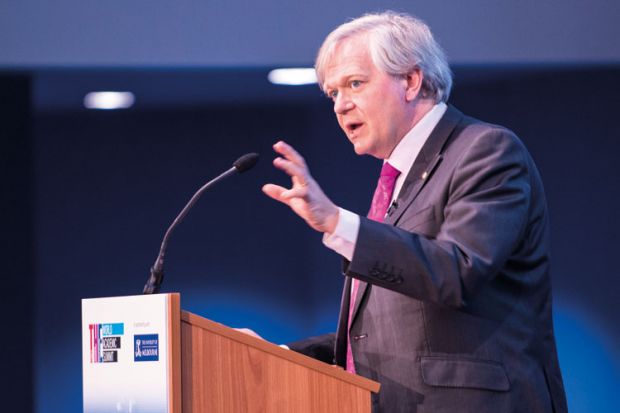Universities must provide funding and job security for talented young researchers if they are to nurture the next generation of Nobel prizewinners.
That was the main message in a speech from Brian Schmidt, winner of the 2011 Nobel Prize in Physics and incoming vice-chancellor of Australian National University, at Times Higher Education’s World Academic Summit in Melbourne on 1 October.
Professor Schmidt said that institutions direct most of their money to academics who are over 50 years old, despite the fact that the “apex of productivity” for researchers is usually far earlier.
“So what’s my advice if you want Nobel discoveries at your institution? Put more of your research spend into your under-forties. Provide these people with career structures that have certainty over more than one three-year contract,” he said.
“We spend most of our money on people over 50. Not just on their salaries but for research projects. The problem is they are not the ones that are going to produce the great leaders of the future.”
He added that too many young researchers are forced to move from one short-term contract to another, which means that academics who end up being selected for permanent posts are “not necessarily the best”, but those who are willing to “stand a very savage system”.
“Instead of putting people on three, four or five short-term contracts and then cutting them loose at 45 – that’s pretty tough – I think universities need to choose people who they are going to go long term with and give them the resources to do stuff when they’re young rather than torturing them and giving 10 people mixed signals,” Professor Schmidt advised.
“You put them in a pressure cooker and under-resource them in the most productive time in their lives. Be honest with people – most won’t make it, but at least give them an indication relatively early on. And for those that don’t make it, most of them are going to get great jobs.”
He cited his time at Australian National University in the 1990s as an example, stating that he was only given a five-year extension of his job because three other people had turned it down.
“Two days after my 31st birthday, we announced the discovery that the expansion of the universe is accelerating [for which he was awarded the Nobel prize]. That was just five weeks after my job almost came to an end. That’s how finely balanced a young research career is.”
Professor Schmidt said that creating a more certain environment for early career researchers would also make it easier for institutions to keep and attract women at post-PhD level.
Speaking on a panel debate titled “Nurturing the next generation of Nobel laureates” after Professor Schmidt’s speech, Wolfgang Huang, director of the Lindau Nobel Laureate Meetings – a yearly conference for Nobel laureates – agreed that universities must create an environment where students and young researchers do not have to be “dependent on academic structures”.
“The majority of the feedback I get from Nobel laureates is that students are too concerned with things like career progression. They are more interested in getting a programme position than getting exciting research,” he said.
“[Universities] have to create an environment where there is enough security so young scientists don’t have to worry about career progression.”
The World University Rankings 2015-2016 were launched at the summit. View the full results.
后记
Print headline: Back young researchers if Nobels are your aim, says laureate Brian Schmidt






